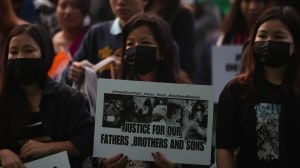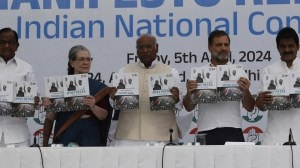- India
- International
Breathe easy
A growing body of research reveals it also increases the risk of heart disease and strokes, impairs cognitive function and leads to as many as seven million premature deaths around the globe, every year.
 Not only was the woman’s story untrue, the video was produced by Peabody Energy, the world’s largest privately held coal company.
Not only was the woman’s story untrue, the video was produced by Peabody Energy, the world’s largest privately held coal company.
Most people know that air pollution harms those with asthma or lung disease, but a growing body of research reveals it also increases the risk of heart disease and strokes, impairs cognitive function, harms child lung development and leads to as many as seven million premature deaths around the globe, every year. Consequently, a resolution at the 2015 World Health Assembly recognised air pollution as a global public health priority.
The path to clean air will not be easy. Strong lobbies and special interests will try to delay and derail good health policy, but we can leverage our experience of confronting other vested interests to deliver change. Many countries now have effective tobacco control policies, but had to overcome tobacco industry interference every step of the way. The companies most responsible for air pollution are using similar tactics.
Industry vociferously decries and even suppresses science harmful to its interests. The Master Settlement Agreement in 1998 revealed a trove of internal tobacco industry memos, showing that the industry knew that tobacco caused harm and death, and that tobacco control policies delivered public health benefits, but nevertheless downplayed them publicly to protect sales and profits.
The Pulitzer prize-winning InsideClimate News reported that Exxon was at the cutting edge of climate change research over 40 years ago, but suppressed its findings and subsequently went on to attack climate change as false, to protect its commercial interests. The industry-funded think-tanks have a habit of confusing policymakers and the public. Tobacco giant Philip Morris established the Council for Tobacco Research to promote alternative explanations for lung cancer in smokers. Similar think-tanks attempt to subvert clean air policies.
The Beacon Hill Institute produced highly critical reports on proposed US clean air regulations, using discredited economic models. The Koch brothers, whose corporation is guilty of egregious environmental violations, funds the Institute. Similarly, industry-funded groups peddle misnomers such as “clean coal”; like “light cigarettes,” these terms evoke an association of mitigated risk that is misleading.

The tobacco industry often claims that tobacco control policies will impoverish entire communities, conveniently ignoring that the economic costs of tobacco-related diseases and deaths total around $22 billion a year in India alone. Critics of clean air regulations call authorities like the US Environmental Protection Agency “job-killing machines.” Yet, clean air regulations are economically beneficial: The European Union estimates its clean air policy package will offer an economic benefit of €40-140bn per year in 2030, and deliver €3bn in direct economic benefits.
The tobacco industry claims it helps poor tobacco farmers and workers. In fact, they are often working in degraded conditions, earning mere subsistence wages and susceptible to tobacco-related illness. Major polluters do the same; the Chinese campaign “From Candles to Computers” told the story of a young, rural woman who was saved from impoverishment by the arrival of coal-fired power plants in her village. Not only was the woman’s story untrue, the video was produced by Peabody Energy, the world’s largest privately held coal company.
The tobacco industry frequently depicts governments that institute strong tobacco control policies as “nanny states”. Critics of clean air policies make similar arguments, tapping into the cultural zeitgeist of freedom and independence.
Tobacco giants and big polluters seek to block international policy when it goes against their interests. For example, during negotiations on the Framework Convention on Tobacco Control in Moscow in 2014, the tobacco-funded International Tax and Investment Centre lobbied government officials at private meetings to subvert agreement on tobacco taxes. This year, global energy companies EDF and ENGIE are part-sponsors of the Conference of Parties-21 of the United Nations Framework Convention on Climate Change.
In sum, the big polluters’ playbook is familiar with health advocates, even if the policy issues and interventions to curb air pollution are different. This points us towards potential solutions. By exposing industry tactics, spreading the truth about tobacco harm, creating social movements, and successfully litigating against industry violations and interference, tobacco control has advanced in even the most unlikely countries. By using our collective experience to deploy similar strategies against big polluters, we could make quick progress towards implementing clean air policies that will improve the health and wealth of our nation.
EXPRESS OPINION
More Explained
Apr 25: Latest News
- 01
- 02
- 03
- 04
- 05











































